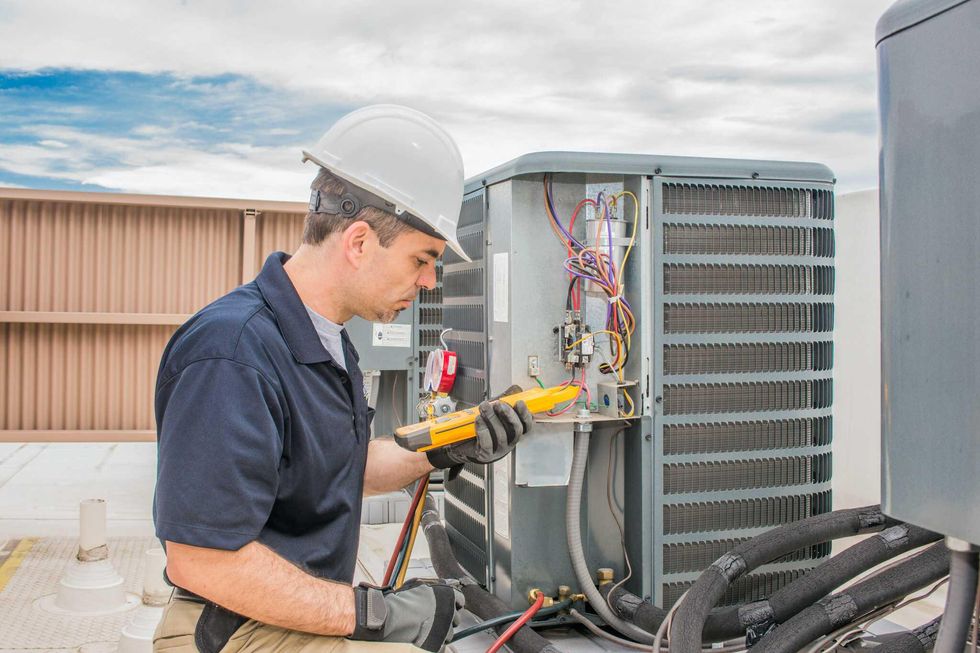HVAC technicians have to take a lot of different types of training to do their jobs. From safety to on-site inspections and even training themselves on how best to perform tasks, these technicians are given the opportunity for a huge variety of certifications. However, not all technicians are qualified enough for a certain type of training - like hot water system training. Here's why HWS training is important and what kinds of precautions you should take when working with one!
Hot Water System Training
Hot water systems are essential for any technician working in the home heating and cooling industry. A properly functioning hot water system can save energy and money and ensure that your customers are comfortable.
A hot water system typically consists of three parts: the water heater, the pump, distribution piping. To ensure proper function, all three parts must be properly trained.
The water heater must be properly sized and configured to produce hot water at the desired temperature. The water must be kept at a consistent temperature by the pump, which circulates it through the distribution piping. If any part of the hot water system is not functioning correctly, it can lead to poor customer service or even property damage.
For technicians working in the home heating and cooling industry, proper hot water system training is essential for ensuring customer satisfaction and safety. If you are looking to become a HVAC technician, make sure to invest in training that will teach you everything you need to know about hot water systems.
Benefits of Hot Water System Training
Hot water system training is necessary for every HVAC technician because it provides the technician with the knowledge and skills needed to properly service and maintain a hot water system. When servicing a hot water system, there are certain safety precautions that must be taken to avoid potential injury. For example, always wear gloves when entering the water system and use a ladder whenever possible to access high-voltage electrical components. Additionally, always shut off the water supply to the hot water system before beginning any repair or replacement work. Finally, always follow proper safety procedures while working in wet areas, such as using a dust mask and eye protection. Without proper training, these precautions can easily be forgotten and lead to potential injury or even death. By taking advantage of hot water system training offered by your local HVAC technician school, you can ensure that you are equipped with the knowledge and skills needed to safely service and maintain your hot water system.
What Does a Typical HVAC Technician Look Like?
A typical HVAC technician looks like someone who is well-versed in the ins and outs of heating, ventilation and air conditioning (HVAC). They may have a degree in mechanical engineering or another relevant field, and they are typically highly-skilled at troubleshooting and fixing HVAC systems. In order to be a successful HVAC technician, it is important to have a good understanding of the mechanics of these systems. Additionally, technicians must be able to identify potential problems with a system before they become serious. This means having training in hot water system maintenance is essential for HVAC technicians.
Who Should Attend a Training Class?
Every HVAC technician should attend a training class if they want to keep up to date on the latest technology and safety practices. The most recent standards for hot water systems require technicians to be familiar with the system's design and installation. In addition, continuing education (CE) credits are available for attending training classes that cover newer technology and safety issues.
It is also important for technicians to be aware of potential health hazards associated with working in hot water systems. For example, Legionnaires' disease can be transmitted through mist or droplets from a hot water system, and Salmonella can be spread through contaminated water. If you work in a hot water system, it is important to know how to protect yourself and your coworkers from these hazards.
If you are not currently trained in hot water systems, consider taking a training class before you start working on a project. There are so many options available, and the best one for you will depend on your experience and interests.
How to Get Started as an HVAC Technician
There's a lot to know as an HVAC technician, and it can be overwhelming at first. If you want to start out on the right foot and become an expert in your field, you need to take some basic training. Here are a few reasons why hot water system training is so important:
- 1.You'll be able to diagnose problems quickly and easily. Knowing how to identify different types of HVAC issues will make troubleshooting much easier, and you'll be able to get your customers back up and running as soon as possible.
- 2.You'll be better equipped to handle warranty claims. By knowing the basics about water heating systems, you'll better understand what needs to be fixed or replaced when something goes wrong. This will help you avoid any costly surprises down the road.
- 3.You won't make any common mistakes that can lead to serious injury or even death. By training on hot water system safety, you're ensuring that you won't end up causing any harm to yourself or others during your workday.













